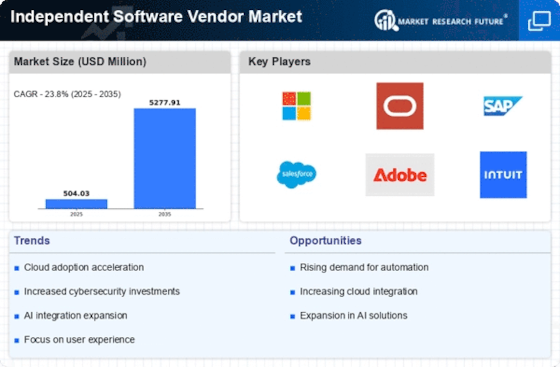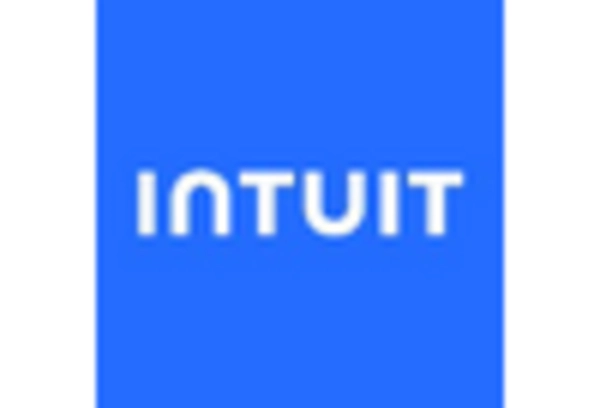Market Trends
Key Emerging Trends in the Independent Software Vendors Market
Independent Software Vendors (ISVs) market trends have been undergoing notable shifts in recent years, reflecting the dynamic nature of the software industry. The increasing focus on cloud-based solutions is a prominent trend. ISVs increasingly leverage cloud platforms to deliver their software applications, allowing for greater scalability, accessibility, and cost-effectiveness. This transition to the cloud aligns with the broader industry movement toward software as a Service (SaaS) models, enabling ISVs to offer subscription-based services and generate recurring revenue. Moreover, the demand for specialized niche solutions has been on the rise. ISVs are moving away from one-size-fits-all software products to develop highly specialized applications catering to specific industries or business functions.
The growing recognition that tailored solutions can provide end-users with more targeted and effective results boosts the market size. As businesses seek software solutions that align closely with their unique requirements, ISVs capitalize on this trend by developing applications with industry-specific features and functionalities. The integration of AI and ML technologies is another significant trend shaping the ISV market. As businesses across various sectors recognize the value of data-driven insights, ISVs incorporate AI and ML capabilities into their software products. This integration enables end-users to derive meaningful insights from their data, automate repetitive tasks, and enhance decision-making processes.
The adoption of AI and ML in ISV solutions is not only a response to market demand but also a strategic move to stay competitive in an increasingly tech-savvy landscape. Security and compliance have become paramount concerns in the ISV market. With the rise of cyber threats and stringent data protection regulations, ISVs prioritize developing secure and compliant software solutions. End-users are now more vigilant about the security features of the software they deploy, making it imperative for ISVs to invest in robust cybersecurity measures. This trend is evident in incorporating encryption, multi-factor authentication, and other security protocols into ISV offerings to protect sensitive data and maintain regulatory compliance. Collaboration and partnerships are key strategies for ISVs to expand their market presence.
Many ISVs forge strategic alliances with other software vendors, technology providers, and industry-specific partners to enhance their product offerings and reach a broader audience. These collaborations enable ISVs to integrate complementary technologies, share resources, and tap into each other's customer bases, fostering mutual growth and innovation. Furthermore, the shift towards DevOps practices transforms how ISVs develop, deploy, and update their software. Embracing DevOps methodologies allows ISVs to streamline their development processes, collaborate between development & operations teams, and accelerate product-to-market time. This trend reflects a broader industry recognition of the importance of agility and continuous delivery in responding to evolving market demands.


















Leave a Comment